
 Flash News
Flash News
Accident in Lushnje, four cars and a motorcycle involved
SPAK closed the investigations, Meta reacts: It was signed on the orders of Edi Rama
Defendant was taken from SPAK, Kryemadhi: Chief Prosecutor of BKH is Edi Rama
Laundered Çopjave money, arrested in Dubai Armis Stafa
The Democratic Party appeals the election results in Korça
Tirana becomes difficult for young families, births fell by 18% in January-March
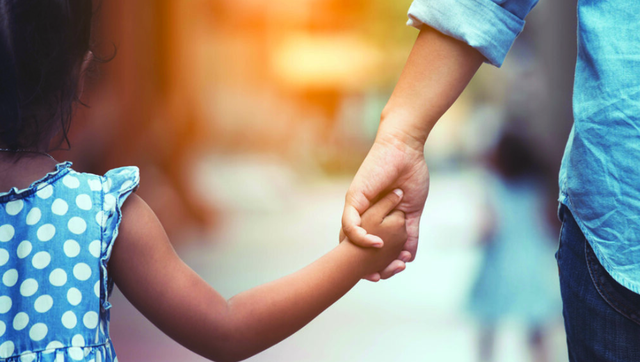
Tirana is the only region in the country that has population growth, as a center of gravity that attracts internal migration, but on the other hand, the Capital City led the regions with the largest decline in births in the first quarter of 2025.
Official INSTAT data show that 1,750 babies were born in the Tirana region in the first quarter of 2025, an 18% decrease compared to the same period a year earlier. Tirana ranked second after Kukës for the high rate of decline among the other 12 regions. On the other hand, the population of the Tirana region between the two censuses of 2011 and 2023 has increased by 7.3 percent.
Factors for the decline in births in Tirana are related to the high costs of living for young couples and the high prices of childcare.
Housing prices in Tirana have increased by more than 60% since 2018, according to official data, while the stock of social housing remains in a state of flux. Rent and credit account for more than 35 percent of monthly income, pushing couples to limit births. For young people who want to start families, housing and rent costs have almost doubled. The average rent now in the main areas of Tirana ranges from 300-80 euros per month, more than double from 2019 when rents were from 150 to 300 euros per month. Also, the price of a square meter of housing in the suburbs this year is 100-1200 euros, while in areas inside the second ring road more than 2000 euros, almost double before the pandemic.
Tirana has a large contribution to the number of births as the capital is where most young Albanians who do not want to leave the country are projected to live. In 2024, 8,495 babies were born in Tirana, accounting for 38 percent of the total births nationwide, but as the population grows, births are plummeting.
Arbana, a young woman who is an expert in communication and social media, is raising 2 children. She wanted to have a third child, but the costs have become unaffordable, she says. Compared to 2016 when she gave birth to her first child, the costs have more than doubled. The birth package if you go to a private hospital has increased from 1,000 euros to 2,600 euros currently. Also, clothing, food and all the infrastructure for children has more than doubled.
"Since I had my second child, my husband and I, both with above-average salaries, have not been able to save. We are not even able to buy new clothes and other things for ourselves like before. We have limited entertainment expenses and going out with friends, as year after year the fees for daycare centers and medical checkups are increasing daily. Mainly due to increasing costs, we have put aside plans to have a third child that we so much wanted," she said.
After birth, parents face various expenses for baby care, which have doubled in 5 years. Within a 5-year period, the prices of private courses have had a price difference of almost 40%.
For sports or music courses, the average prices were 3500 lek, currently they are 5000 lek. While the highest increases of over 50% have been experienced by foreign language courses for children 5 years and older. The prices of other goods and services for children have also increased at the same rate.
INSTAT reported a few days ago that in the first quarter of this year, 4,662 babies were born across the country, a 14% decrease compared to the same period in 2023./ Monitor
Latest news

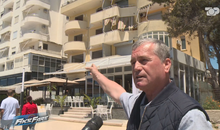

70 Albanians from Kosovo and Albania are deported from Germany
2025-05-27 20:59:16

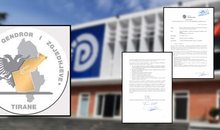

Italy/ 39-year-old Albanian man crashes to death while waiting to go to work
2025-05-27 20:15:03
SPAK's accusations against Meta, AP: Former president openly critical of Rama
2025-05-27 20:09:47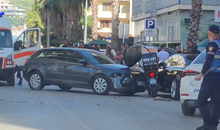
Accident in Lushnje, four cars and a motorcycle involved
2025-05-27 19:44:24


Rama eating pasta, photojournalist reveals the story behind the viral photo
2025-05-27 19:13:56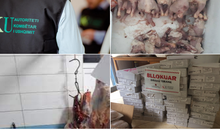
Meat with salmonella still on the market? AKU reacts: Fake news
2025-05-27 19:03:29
Violations of May 11, Lela: 'Database' ready, internationals are being informed
2025-05-27 18:47:40
Scandal with animal products in Kosovo, Minister of Agriculture questioned
2025-05-27 18:47:24
Congratulations... to the Albanian people
2025-05-27 18:20:00

"SP stole 2 mandates from us", Lapaj: Fier and Vlora regions must be recounted
2025-05-27 17:42:39

Kosovo takes control of another facility in Leposavic
2025-05-27 17:25:55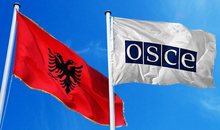

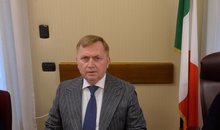

DP demands repeat elections in Gjirokastra and Vlora
2025-05-27 16:37:47
Should Berisha resign? Alimehmeti: Stages cannot be burned
2025-05-27 16:18:22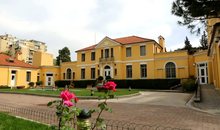
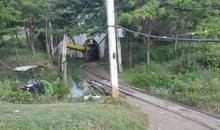

Sunscreen, five myths that endanger your health
2025-05-27 15:52:57

EC chief condemns Israeli attacks on Gaza: They are disgusting
2025-05-27 15:23:30



Defendant was taken from SPAK, Kryemadhi: Chief Prosecutor of BKH is Edi Rama
2025-05-27 14:47:32
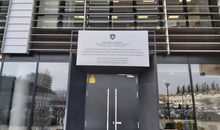
Police raid Kosovo's Ministry of Agriculture
2025-05-27 14:31:07
Laundered Çopjave money, arrested in Dubai Armis Stafa
2025-05-27 14:22:55
Tried to kill cousin in Italy? Case against Albanian from Kosovo closed
2025-05-27 14:12:33
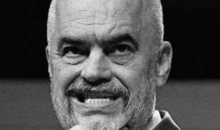
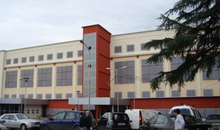

Prostitution network busted, Brazilian woman declared wanted
2025-05-27 13:31:20

SPAK took the defendant, Meta reacts: I eagerly await the start of the trial
2025-05-27 13:11:06

A party with a dead body inside
2025-05-27 12:51:40



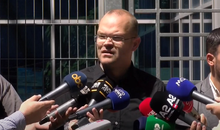
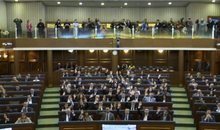
Session to constitute Kosovo Assembly fails for the 22nd time
2025-05-27 11:53:33
He passed away a few days ago, tributes are being held in honor of Artan Lame
2025-05-27 11:44:47
Reactions to Macron's slap
2025-05-27 11:32:35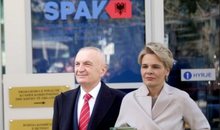

Greek notary killed with intent to rob her, 3 Albanians arrested
2025-05-27 11:11:25
Aulona Kalaja appears at SPAK, files a complaint for the forgiveness of fines
2025-05-27 10:58:24

Meta will use Europeans' posts for AI training
2025-05-27 10:42:07

The Democratic Party appeals the election results in Korça
2025-05-27 10:23:11

Igli Tare appointed Milan Sporting Director
2025-05-27 10:03:54
Albanian caught with cocaine worth around 14 million euros
2025-05-27 10:00:56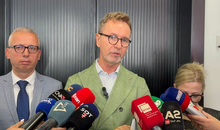

Foreign exchange/ How much foreign currencies are bought and sold today
2025-05-27 09:40:13
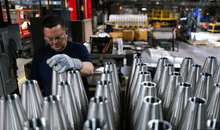
Brussels presents 150 billion euro plan to strengthen EU defense capabilities
2025-05-27 09:14:33

He raped his minor daughter, 60-year-old man arrested (NAME)
2025-05-27 08:57:54

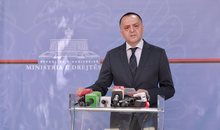
Artan Lame is being transported to his final residence today
2025-05-27 08:26:24
Horoscope, what do the stars have in store for you today?
2025-05-27 08:15:43
Weather forecast, sun and temperatures up to 29 degrees during the day
2025-05-27 08:01:32
Morning Post/ In 2 lines: What mattered yesterday in Albania
2025-05-27 07:47:24




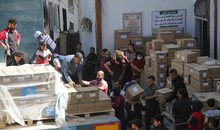
WHO calls for medical aid trucks to be allowed into Gaza
2025-05-26 21:46:31
Did he want to burn it by running in Vlora? Gjiknuri: Rama experimented
2025-05-26 21:39:25


REL: Serbian police order for the arrest of Kosovo policeman, "very unreal"
2025-05-26 21:01:48

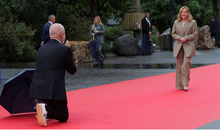

Milan officially announces the appointment of Igli Tara as Sporting Director
2025-05-26 19:43:14

Former Kosovo MP released after being detained at border by Serbian authorities
2025-05-26 19:24:50
Magnificent buffet in Hanoi
2025-05-26 19:03:41

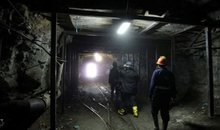

Migrant centers/ Kosovo government ready to discuss with the United Kingdom
2025-05-26 18:05:33
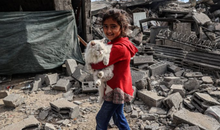
UN: Gaza in agricultural collapse, only 5% of land remains arable
2025-05-26 17:42:53
